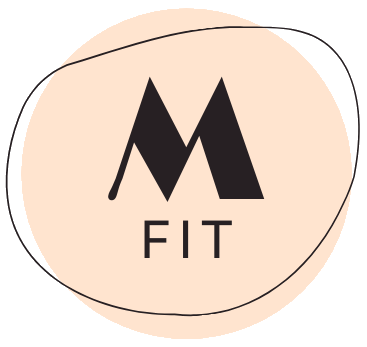
Eating healthy is important no matter what your fitness and health goals are. If you want to lose weight, you need to eat in a way that supports that. If you want to gain muscle, you need to fix your diet to make that happen. If you just want to have more energy and feel better and be happier… eat clean! The hardest part about eating healthy is that there is so much information on the Internet and in books that it’s hard to keep straight what is the right stuff to eat! Well, today I’m going to try and simplify a few things and tell you what you need to know about clean eating. So, here are my 5 tips to healthy eating…
Tip One: Eat foods high in protein & fiber
Foods high in protein and fiber take longer for the body to break down after you consume them. This is great because you will stay fuller longer, which will prevent overeating. Protein and fiber based foods also take more energy to break down. So, eating these foods will help you burn more calories in the break down process. Foods high in protein and fiber burn 20-30% of the calories in the food to digest compared to 5-15% in carbohydrates and fat. So after the digestion process is over you will have already burned some of those calories! Lastly, protein and fiber rich foods prevent blood sugar spikes. White carbohydrates and sugars cause blood sugar spikes, which increases your abdominal fat. Blood sugar spikes aren’t good. You want to be eating foods like: lentils, beans, broccoli, avocados, almonds, salmon, chicken, eggs, quinoa, and oatmeal. These are either high in protein, fiber, or both!
Tip Two: Do not over-eat
This is a very simple tip. Obviously, you know that picking up three happy meals from McDonalds and bingeing on a Saturday afternoon is not healthy. But even eating too much of the right foods still results in an excess amount of calories that will be stored as fat. This is why I tell people if you are eating enough protein, don’t have a protein shake! It’s just excess protein that has nowhere to go. You can eat all of the right things but if you consume a surplus of the “right calories” it’s still a surplus of calories.
Tip Three: Make sure you eat enough
A big thing I see people doing to lose weight is cutting calories. If you want to lose weight and have been eating too much in the past, you do need to cut calories… but not all of them. You still need to eat enough to lose weight. By cutting calories too much you are seriously messing with your metabolism. Eating barely anything might work for a couple days or weeks – but eventually your body will start to fight back at you. You will decrease your muscle mass, which makes it even harder to lose weight. You will also decrease your leptin and energy levels. You use energy even when you’re doing nothing. So you need to know your Basal Metabolic Rate (BMR), or the number of calories your body burns on it’s on. To calculate your BMR, use this calculator from MyFitnessPal. No matter what, you need to eat at your BMR. If you are working out, you should eat a bit more. Honestly, past your BMR it’s a lot of trial and error. See how you feel eating X amount of calories and try different things. Your calorie consumption will be influenced by your goals – but you have to make sure you are eating enough to reach those goals. Deprive your body, and you will be doomed.
Tip Four: Consume metabolism-boosting foods
Now that I just talked about killing your metabolism by eating too little, I want to talk about foods that actually help boost your metabolism. If you have a faster metabolism your body burns more calories throughout the day on it’s on. Activities like HIIT help increase metabolism because your body wants to burn more calories than the short workout allows it to – so it continues burning calories on it’s on. Foods can also increase metabolism. Here are few metabolism-boosting foods you might try adding to your diet: green tea, lentils, eggs, water, chili peppers, cayenne pepper, vinegar and coffee.
Tip Five: Keep healthy carbohydrates in your diet
I would never tell a client to cut carbohydrates out of his or her diet because the body needs carbohydrates to function well. Carbohydrates are necessary to give you energy; in fact, they are the main energy source for your body. Contrary to what the weight loss world has led you to believe, a “low-carb” diet won’t solve all of your weight loss problems. Carbohydrates can either be natural like the kind found in plant-based foods, or synthetic like the kind manufacturers add to processed foods. Focus on consuming fiber-rich fruits and vegetables with no added sugar. Also, choose whole grains over refined grains. Refined grains go through a process that strips away most of the fiber and nutrients, leaving you with the “bad carbohydrates.” Eat more beans and legumes (beans, peas, lentils, edamame). And, as I said before, avoid added sugars. Carbohydrates get a bad rep, but you just need to avoid foods with added sugar and refined grains like sugary drinks and desserts, and if you do that – you will be fine.

One thought on “Clean Eating 101”